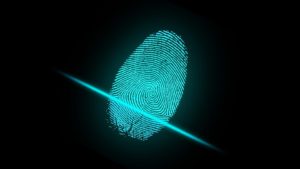DNA Databases and Law Enforcement
By Asia H. – Criminal Justice Intern
Genetic Genealogy has become a popular subject in recent times thanks to DNA testing kits. Users can send in saliva samples and receive a detailed report on their ethnic ancestry or genetic predisposition to certain diseases. While hundreds of thousands of people have taken interest in companies such as 23andme, AncestryDNA and African Ancestry to connect with family and their heritage, others have been drawn to them for different reasons. The large databases created by DNA testing companies have been a source of interest for law enforcement officials who desire to utilize them for investigations. In recent years, law enforcement has used DNA databases to solve cold cases and apprehend criminals.
A slew of cases have been solved and criminals apprehended thanks to sites such as GEDMatch that allow law enforcement (and other users) to upload genetic information and locate matches of other customers. The Golden State Killer, for example, was found when DNA uploaded to GEDMatch linked crime scene evidence with the killer’s genetic relative. By allowing Law enforcement to access DNA databases, violent criminals are caught, families and victims receive justice, and society benefits from fewer criminals on the streets. These benefits of DNA databases do come with issues, however.
 Ethical concerns arise when law enforcement is granted permission to access DNA databases. Customers of DNA testing companies are concerned with who has access to their genetic information and how it is being used. DNA companies sequence DNA to provide services to their customers such as ancestry demographics, health conditions, and locating family members. Allowing users to upload their genetic information is also a service offered by some companies such as MyHeritage. Law enforcement agencies can also upload and compare DNA evidence to locate potential suspects. Not only can law enforcement access the millions of DNA profiles allocated in these databases but they can also construct family trees and predict genetic matches of those outside of the database. Consequently, even non-customers can have their genetic information sequenced through a family member, leaving them vulnerable to potential surveillance by law enforcement. This ethical threat to consumers and society is an issue that should be addressed as law enforcement increases their use of DNA databases. DNA databases, when used correctly and ethically, are a valuable tool for criminal investigators and society. The many solved cases and apprehension of criminals is evidence of that. However, the use of DNA databases by law enforcement should be regulated to protect consumer privacy and consent. This means addressing the ethical concerns of customers and the general public. Companies should disclose how genetic material is used and require customers to consent for law enforcement to access their DNA profile. When the appropriate steps are taken for use of DNA databases by law enforcement, all of society will benefit.
Ethical concerns arise when law enforcement is granted permission to access DNA databases. Customers of DNA testing companies are concerned with who has access to their genetic information and how it is being used. DNA companies sequence DNA to provide services to their customers such as ancestry demographics, health conditions, and locating family members. Allowing users to upload their genetic information is also a service offered by some companies such as MyHeritage. Law enforcement agencies can also upload and compare DNA evidence to locate potential suspects. Not only can law enforcement access the millions of DNA profiles allocated in these databases but they can also construct family trees and predict genetic matches of those outside of the database. Consequently, even non-customers can have their genetic information sequenced through a family member, leaving them vulnerable to potential surveillance by law enforcement. This ethical threat to consumers and society is an issue that should be addressed as law enforcement increases their use of DNA databases. DNA databases, when used correctly and ethically, are a valuable tool for criminal investigators and society. The many solved cases and apprehension of criminals is evidence of that. However, the use of DNA databases by law enforcement should be regulated to protect consumer privacy and consent. This means addressing the ethical concerns of customers and the general public. Companies should disclose how genetic material is used and require customers to consent for law enforcement to access their DNA profile. When the appropriate steps are taken for use of DNA databases by law enforcement, all of society will benefit.